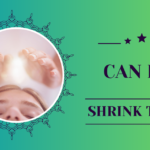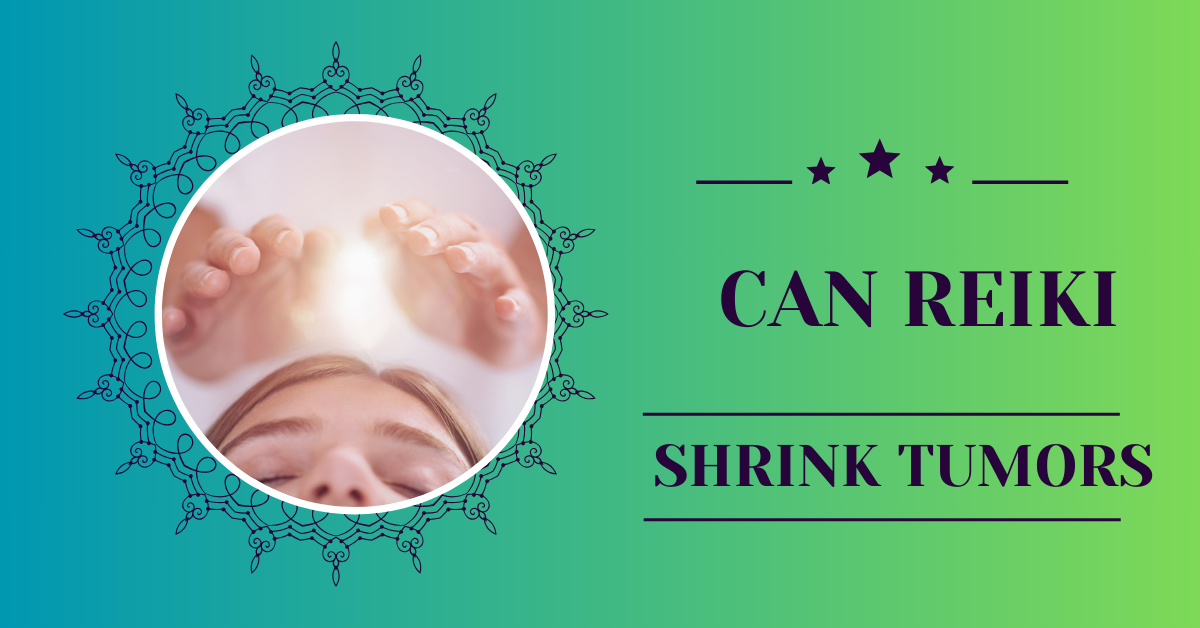In the realm of holistic health, Reiki has emerged as a promising complementary therapy. But can Reiki shrink tumors? This question intrigues many holistic health enthusiasts who seek alternative solutions alongside conventional treatments. This blog will explore the principles of Reiki, the nature of tumors, and how energy healing fits into cancer care. We will also share personal testimonials, expert perspectives, and practical guidance on incorporating Reiki into a holistic cancer care plan.
Introduction to Reiki
Origins and Principles of Reiki Healing
Reiki, a form of energy healing, originated in Japan in the early 20th century. Developed by Dr. Mikao Usui, Reiki is based on the principle that a universal life force energy flows through all living beings. Practitioners believe that by channeling this energy, they can promote physical, emotional, and spiritual healing.
The word “Reiki” comes from two Japanese words—”Rei,” meaning universal, and “Ki,” meaning life force energy. The practice involves the laying on of hands or hovering them over specific body parts to transfer healing energy. Many people report feelings of relaxation and stress relief after a Reiki session.
Reiki is not just limited to physical healing; it also aims to balance the body’s energy levels. This balance is believed to enhance overall well-being, making Reiki a popular choice for those seeking holistic health solutions.
Understanding Tumors Can Reiki Shrink Tumors
Nature of Tumors and Their Development
Tumors are abnormal growths of cells that can develop in various parts of the body. They are broadly classified into benign (non-cancerous) and malignant (cancerous) tumors. While benign tumors are usually harmless, malignant tumors can invade surrounding tissues and spread to other parts of the body, a process known as metastasis.
The development of tumors involves multiple stages. Initially, genetic mutations cause normal cells to grow uncontrollably. These mutated cells form a mass, which, if malignant, can disrupt normal bodily functions. Traditional treatment methods for cancer include surgery, chemotherapy, radiation therapy, and targeted therapies.
Understanding the nature and development of tumors is crucial for exploring how complementary therapies like Reiki can fit into a holistic cancer care plan. While conventional treatments focus on removing or destroying cancer cells, holistic approaches aim to support the body’s natural healing processes.
The Concept of Energy Healing
Application in Holistic Health
Energy healing is based on the premise that imbalances or blockages in the body’s energy flow can lead to physical, emotional, and spiritual ailments. Practitioners use various techniques to restore this balance, thereby promoting healing and well-being.
Reiki, as a form of energy healing, focuses on channeling universal life force energy to clear these blockages. It is often used alongside other holistic practices like acupuncture, yoga, and meditation to create a comprehensive wellness plan. This integrated approach aims to address not just the symptoms but the root causes of health issues.
Many holistic health enthusiasts find energy healing appealing because it complements traditional medical treatments. By promoting relaxation and reducing stress, energy healing can enhance the body’s ability to heal itself, making it a valuable addition to any wellness regimen.
Reiki’s Role in Cancer Care
Existing Studies and Insights
Reiki’s role in cancer care has garnered attention from researchers and healthcare professionals alike. While scientific studies on Reiki and tumor shrinkage are limited, there is growing evidence supporting its benefits in cancer care.
A study conducted by the University of Washington Medical Center integrated Reiki into the care of cancer patients. The results indicated positive effects on pain management and quality of life. Patients reported reduced stress, improved emotional well-being, and a greater sense of control over their illness.
Another study published by the National Institutes of Health explored the impact of Reiki on cancer patients undergoing chemotherapy. The findings suggested that Reiki could help alleviate some of the side effects of chemotherapy, such as nausea and fatigue, thereby improving patients’ overall quality of life.
While more research is needed to definitively prove Reiki’s effectiveness in tumor shrinkage, these studies highlight its potential as a complementary therapy in cancer care. By reducing stress and promoting relaxation, Reiki may support the body’s natural healing processes, enhancing the effectiveness of conventional treatments.
Personal Experiences and Testimonials
Real-Life Stories
Personal testimonials provide valuable insights into the potential benefits of Reiki in cancer care. One compelling story is that of a 52-year-old woman with breast cancer, who incorporated daily Reiki sessions alongside her conventional treatment. She observed reduced stress levels, improved well-being, and a more positive outlook on her recovery.
At the University of Washington Medical Center, patients who received Reiki as part of their cancer care reported similar benefits. They experienced less pain, better emotional stability, and an overall improvement in their quality of life. These real-life experiences highlight the complementary role of Reiki in cancer treatment.
Holistic health practitioners have also witnessed the benefits of Reiki in tumor shrinkage. Many have shared anecdotes of patients experiencing significant improvements in their condition after incorporating Reiki into their treatment plans. While these stories are not scientific evidence, they offer hope and encouragement to those exploring holistic health options.
Expert Perspectives
Practitioner and Healthcare Professional Opinions
Experts in both Reiki and conventional medicine have weighed in on the potential benefits of Reiki for tumor shrinkage. Deepak Chopra, a renowned advocate of integrative medicine, emphasizes the importance of a holistic approach to health. He believes that practices like Reiki can enhance the body’s natural healing abilities by reducing stress and promoting relaxation.
Dr. Oz, a well-known medical practitioner, has also spoken about the benefits of Reiki. He acknowledges that while more scientific research is needed, the existing evidence suggests that Reiki can be a valuable complementary therapy. Dr. Oz highlights the importance of integrating holistic practices into conventional treatment plans to provide comprehensive care for patients.
Reiki Masters, who have years of experience in energy healing, also support the use of Reiki in cancer care. They emphasize the importance of maintaining an open mind and being willing to explore different healing modalities. According to these experts, Reiki can be a powerful tool for enhancing well-being and supporting the body’s natural healing processes.
Practical Guidance
Incorporating Reiki into a Holistic Cancer Care Plan
For those interested in incorporating Reiki into their cancer care plan, here are some practical tips to get started:
1. Find a Qualified Practitioner: Look for a certified Reiki practitioner with experience in working with cancer patients. Personal recommendations, online reviews, and professional associations can help you find a reputable practitioner.
2. Set Clear Intentions: Before each Reiki session, set clear intentions for what you hope to achieve. Whether it’s reducing stress, managing pain, or improving emotional well-being, having a clear focus can enhance the effectiveness of the treatment.
3. Combine with Conventional Treatments: Reiki should not replace conventional cancer treatments but rather complement them. Discuss your interest in Reiki with your healthcare team to ensure it fits well with your overall treatment plan.
By following these guidelines, you can create a holistic cancer care plan that incorporates the benefits of Reiki while also addressing the medical aspects of your condition.
Conclusion Can Reiki Shrink Tumors
Summarizing Key Points
Incorporating Reiki into a holistic cancer care plan offers a promising complementary approach to traditional treatments. While scientific evidence on Reiki’s ability to shrink tumors is still emerging, existing studies and personal testimonials highlight its potential benefits in reducing stress, managing pain, and improving overall well-being.
For holistic health enthusiasts, Reiki provides an opportunity to explore alternative healing modalities and support the body’s natural healing processes. By integrating Reiki into a comprehensive wellness plan, individuals can enhance the effectiveness of conventional treatments and improve their quality of life.
If you’re interested in learning more about Reiki’s holistic benefits, consider exploring further resources or booking a session with a certified practitioner. Your journey towards holistic health and well-being begins with an open mind and a willingness to explore new possibilities.
Learn more about Reiki’s holistic benefits and discover how it can enhance your wellness journey.
Frequently Asked Questions Can Reiki Shrink Tumors
1. What is Reiki and how does it work?
Reiki is a form of energy healing that originated in Japan. It involves the transfer of universal energy from the practitioner’s hands to the patient, aiming to promote relaxation, reduce stress, and support the body’s natural healing processes. This energy transfer helps to balance the body’s energy fields and encourage overall well-being.
2. Is Reiki safe for cancer patients?
Yes, Reiki is generally considered safe for cancer patients. It is a non-invasive therapy that can be used alongside conventional treatments. However, it is essential to consult with your healthcare team before incorporating Reiki into your cancer care plan to ensure it complements your existing treatments effectively.
3. How can I find a qualified Reiki practitioner?
To find a qualified Reiki practitioner, consider seeking recommendations from friends, family, or healthcare providers. You can also search online directories and review sites for practitioners in your area. Look for certified practitioners with experience in working with cancer patients and check for any professional affiliations or memberships with reputable Reiki organizations.
4. How many Reiki sessions will I need?
The number of Reiki sessions required varies depending on individual needs and goals. Some people may experience benefits after just one session, while others may need multiple sessions to achieve their desired results. It is essential to discuss your specific needs with your Reiki practitioner to create a tailored treatment plan.
5. Can Reiki replace conventional cancer treatments?
No, Reiki should not replace conventional cancer treatments. It is intended to be a complementary therapy that works alongside traditional medical treatments. Reiki can help manage symptoms, reduce stress, and improve overall well-being, but it is crucial to continue with your prescribed medical treatments and consult your healthcare team about integrating Reiki into your care plan.







